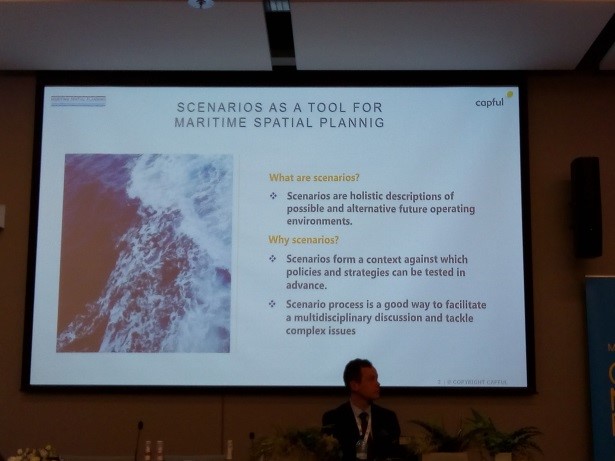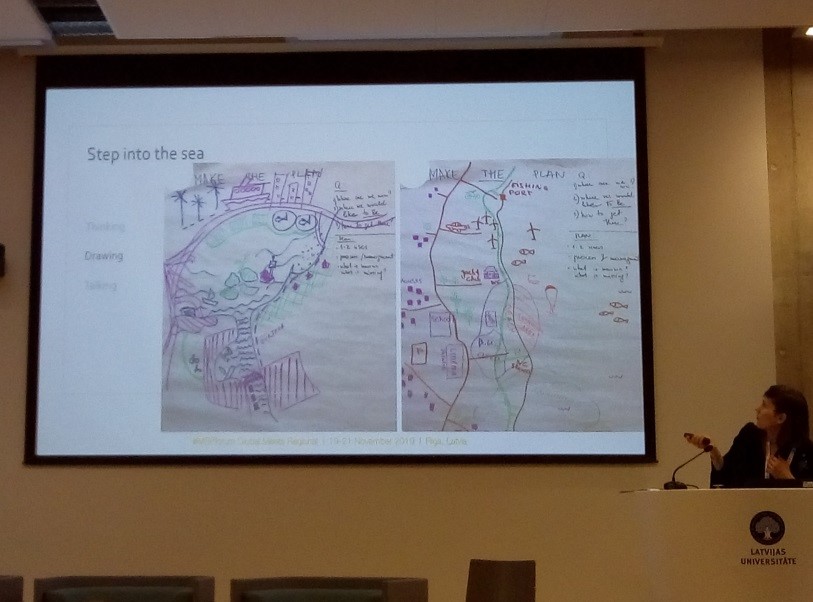Maritime Spatial Planning (MSP) Forum, organised together by VASAB, UNESCO’s Intergovernmental Oceanographic Commission, European Commission’s Directorate-General for Maritime Affairs and Fisheries, Pan Baltic Scope collaboration and University of Latvia, served as a joint event of the 4th International MSP Forum, 3rd Baltic MSP Forum as well as the closing conference of Pan Baltic Scope collaboration which looked at land-sea interactions in the Baltic Sea.
MSP can be a powerful tool to increase land-sea synergies and an opportunity for coastal-rural collaborations. However in the Baltic Sea, including land-sea interactions in Marine Spatial Planning is still relatively new, the Pan Baltic Scope project was one of the first projects to fully assess this challenge and provides lessons, stories and ideas on how to integrate Land-Sea Interactions (LSI) into MSP in the Baltic Sea region. The approach taken with the stakeholders in the Riga Bay case study (“thinking”, “drawing”, “talking” about LSI) was relatively similar to the one used in the COASTAL sectoral workshops (mental mapping of the land-sea system).
The recommendations of the Pan Baltic Scope project are coherent with what COASTAL seeks to develop: the integration of MSP and Integral Coastal Zone Management process into one overall planning instrument to promote “one space” (e.g. an integrated development plan) and the need to a have better cross-border consultation process. Land-Sea interactions should be thinking both ways: land-sea and sea-land, across the sector, over time and at different spatial scales.
Another interesting approach to MSP and relevant to the COASTAL project is the use of scenarios to promote blue growth and a healthy sea (PLAN4BLUE project and Finish government approach).
The conference was also a good opportunity to promote the COASTAL project and open doors to new collaborations. The representative of the French Ministry for an Ecological and Inclusive Transition expressed a great interest toward the project and our case study in Charente RB, potential synergies with the newly founded SIMAtlantic project (implementing MSP in the Atlantic region) with a case study in the Parc National du Marais Poitevin, relevant again for the French case study, have also been discussed.
The COASTAL project can benefits from the experience of marine spatial planners as the outcomes and methodologies developed within the project can help better integrate the land-based activities into MSP.


